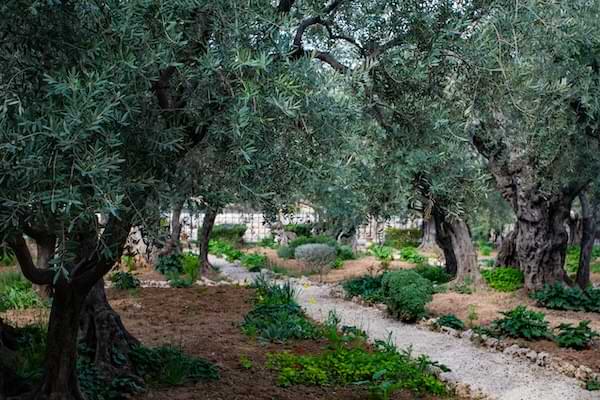Praying for the road to Damascus
Missiles, bombs, and soldiers are traveling the road to Damascus right now.
I’m praying that Jesus appears, once again, on that road to call people to a miraculous understanding of who he is.
Jesus spoke to Saul of Tarsus on that road, and Saul was forever changed.
Might Jesus do that again today?
We can and should ask.
The city of Damascus
Damascus is, according to some, the oldest capital in the world. People may have lived in this area since 9000 BC, but, according to early Egyptian records, it became a significant city around 1350 BC.
It was a perfect location for an ancient city because the land was situated on a high plain that provided a sweeping view in all directions. There was water which provided fertile land for farming. Ancient records report that Abraham settled there for a time before going to the land of Canaan.
Today the city of Damascus is the capital of Syria and considered the fourth holiest city in Islam. The history of the city would make it one of the most interesting tourist destinations in the world, except for the fact that it has been a city of unrest and civil war. Guinness World Records lists Damascus as the “least livable” city because of its instability, poor education, and lack of opportunity. The culture, politics, and infrastructure can’t support tourism, and extreme poverty is commonplace.
Now, war has been added to the long list of troubles this ancient city faces. The soldiers of Israel are slowly working their way through the buildings and streets of Damascus, clearing out people who want to do their nation permanent harm.
The sons of Abraham
Before Abraham’s son with Sarah’s handmaiden was born, an angel of the Lord spoke to Hagar, telling her what kind of man her son Ishmael would become. The angel said, “He shall be a wild donkey of a man, his hand against everyone and everyone’s hand against him, and he shall dwell over against all his kinsmen” (Genesis 16:12 NIV). Centuries of history illustrate the truth of the angel’s proclamation.
Ishmael’s descendants did grow to become “a nation of people great in numbers” who continue to exist as “a hand against everyone else, and everyone’s hand against them.” The evening news tonight will likely display the ever-present reality of the ancient, biblical truth.
Damascus is in modern-day Syria, just outside of the territories of Israel and Iraq. The land has always been strategic and has always been land that any of Abraham’s descendants wished to control. The fighting in Damascus today is intense. Lives have been lost, and there is no ceasefire on the horizon. Some of those who were taken hostage last October are probably being held in Damascus today.
The ancient road to Damascus
After Stephen was stoned, the book of Acts reports, “There arose on that day a great persecution against the church in Jerusalem, and they were all scattered throughout the regions of Judea and Samaria, except the apostles” (Acts 8:1). One of the last things Jesus told his disciples was they would be his disciples, taking his gospel to “Jerusalem, and in all Judea, and in Samaria, and unto the uttermost part of the earth” (Acts 1:8 KJV).
Chapters and verses were not added to the Bible until 1551, about fifteen hundred years after the book of Acts was written. It is interesting Bible trivia to note that Jesus’ words in Acts 1:8 were fulfilled by the words of Acts 8:1.
Christians likely consider the road to Damascus as the place where Jesus spoke to Saul of Tarsus saying, “Saul, Saul, why are you persecuting me?” (Acts 9:4). When we want to pray for the people walking that road right now, we should pray with Saul’s miracle in mind.
Saul of Tarsus was one of the most significant terrorists in Scripture. He was going to Damascus to seek out the Christians who’d fled there. Saul had been arresting, even killing, Christians since the stoning of Stephen. He thought he was defending his faith, but he was persecuting the faithful. When Saul met Jesus on the road to Damascus, his entire life changed. Saul of Tarsus became the apostle Paul, who did more for the spread of the gospel than probably anyone in history.
Which terrorists might meet Jesus today if we prayed for that?
Which soldiers would have their lives completely changed if they heard the voice of Jesus speak to them from heaven?
Jesus still wants to dramatically change lives on both sides of the conflict. Do we pray for everyone involved with the faith found in the book of Acts? Do we believe like Paul taught, that the gospel is “the power of God for salvation to everyone who believes” (Romans 1:16)?
Pray as you watch and read the news
Abraham’s children continue to fight one another, convinced they are serving their faith and their future. Christians are called by the One we serve to “share the gospel” with everyone. Those who fight outside the Christian faith fight for a faith that will fail them.
The gospel, the good news of Jesus Christ, is the faith that will sustain them now and one day sustain them eternally.
The news we watch and read is a call to prayer. Abraham’s children, the descendants of Isaac and the descendants of Ishmael, have a Father in heaven who sent his Son to die for their sins. Maybe today, on the road to Damascus, Jesus will once again call to one of them from heaven saying, “Why are you persecuting me?”
Jesus said, “For the Son of Man came to seek and to save the lost” (Luke 19:10). The Christian position in this war is to be the hands, feet, and heart of Christ for the lost, and the lost exist on all sides of the conflict.
Will you actively pray, led by the Holy Spirit and the truth of God’s word?
The sons of Abraham will continue to fight until Jesus returns. Through prayer, we can fight for those who are lost. Some are hiding in Damascus, hoping to kill, and others are held captive by their enemies. They are also marching along the same land that Saul of Tarsus marched in the first century. Damascus was a key city then and is still a key city today.
We need to pray for God to do miracles and make himself and his will known to those who have not met his Son.
Please, Jesus, call out to them on the road. Appear to them in their dreams.
Send angels of protection to the innocent and comfort all the children.
May many who are lost repent and come to know Christ as their Lord and Savior.
May those who are saved live the rest of their lives as your disciples, sharing their salvation with others.
May Paul’s life remind Christians to pray under the power and authority of their Lord and Savior, who can accomplish far more than we can even ask or imagine.
In your name, Jesus, and for your glory, we pray. Amen.
___________________________________
For more on the war in Israel, please visit the Denison Forum Israel resources page for more articles, podcasts, and other resources.


